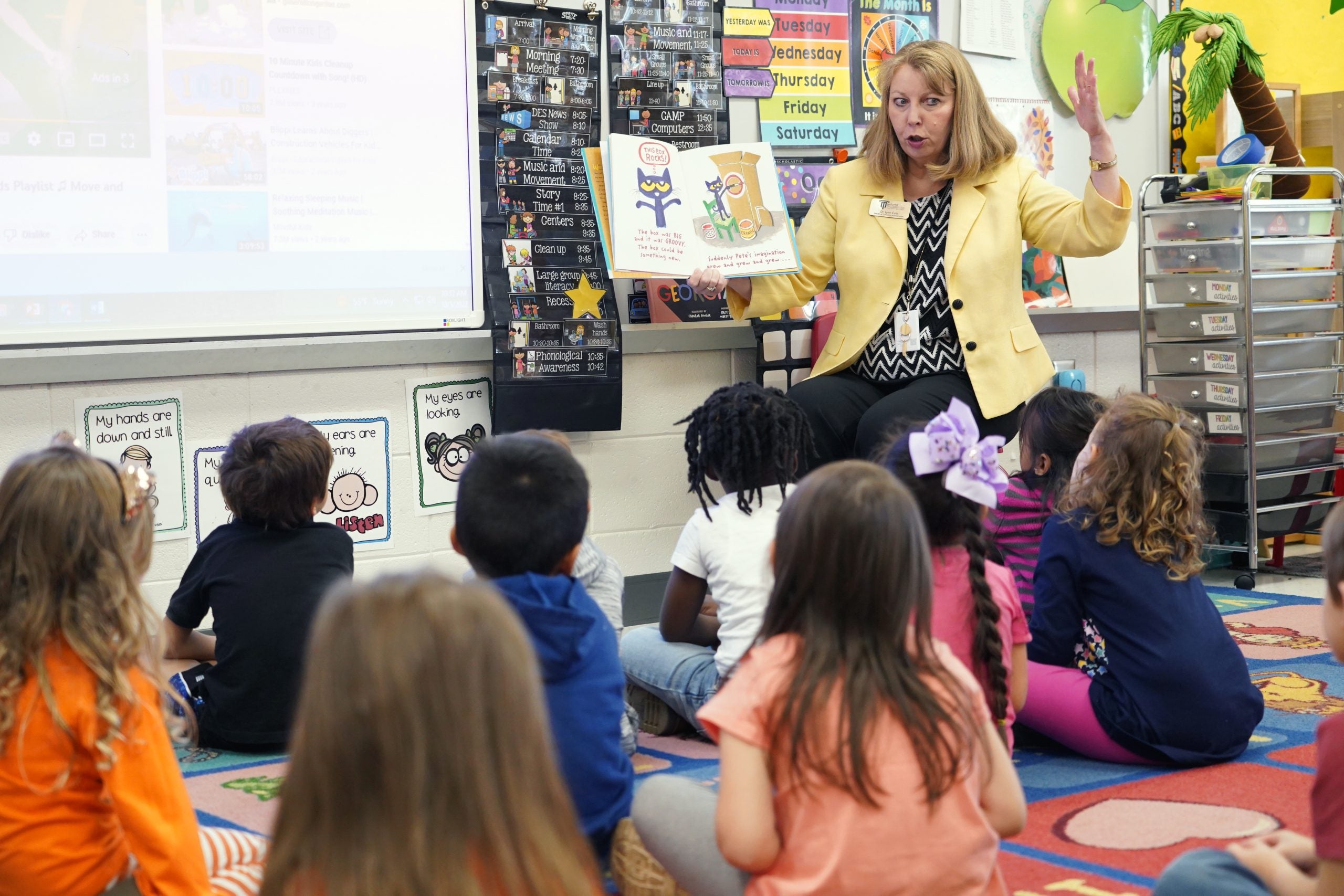Georgia’s pre-kindergarten is observing its 30th anniversary this year, and schools celebrated Pre-K Week last week with special activities for young learners.
The Georgia Department of Early Care and Learning administers the state’s Pre-K program and is also responsible for meeting the early learning and childcare needs of all minors within Georgia. The program has educated more than 1.8 million youth since it began in 1992 and recognizes the importance of early childhood education across the state.
In July, Gov. Brian Kemp announced that more than $25 billion had been raised for educational programs including Pre-K.
Richmond County has 58 Georgia Lottery funded Pre-K classes in 31 elementary schools and provides a full instructional day to eligible four-year-olds.

In the 2021-2022 school year, Richmond County had about 1,320 students enrolled in Pre-K by the end of the spring semester.
“We are one of the largest Pre-K programs in the state of Georgia,” said Melanie Lumpkin, Pre-K Program Administrator for the Richmond County School System. “Our district recognizes the importance of early literacy and numeracy for all of our students and works to retain Pre-K teachers, offer professional development resources and incorporate technology to build a strong foundation for life-long learners.”
Lumpkin also said Pre-K teaches students skills they will utilize daily both inside and outside the classroom; skills such as sharing, taking turns, communicating with others, self-advocating, using technology, creating, thinking outside the box and how to follow rules.
Across the board, educators agree that Pre-K tends to improve school readiness in students compared to those who do not attend some sort of early learning program. They are typically more prepared for the social interactions of kindergarten and engage more confidently in the rituals and routines of the classroom than their counterparts who are brand new to the learning environment.
“A considerable amount of research over the years has proven that children from quality early learning settings consistently arrive at kindergarten prepared and ready to learn,” said
Polly McKinney, Advocacy Director of Voices for Georgia’s Children, in a news release.
McKinney believes the only thing more gratifying than the state’s level of commitment to early learners is the feedback they have been receiving from witnessing happy and healthy four-year-olds thrive in the school environment.
In honor of the special week, Georgia Power partnered with the nonprofit Voices for Georgia’s Children and the Georgia Department of Early Care and Learning for the ninth consecutive year.
This year’s official book for the week is “Hey Georgia” by Malcolm Mitchel, a former University of Georgia football star.
As part of the Pre-K Week and in celebration of the program’s 30th anniversary, McDuffie County School System administrators read to classes at Dearing and Maxwell Elementary School.
Superintendent Mychele Rhodes read “Jonathan James and the Whatif Monster” on Oct. 3 and gave students their own bookmark to encourage their individual reading.
Through the end of the 2021-2022 school year, over 5,200 McDuffie County students have participated in the Pre-K program since the program began – receiving over $20 million in funding. For the 2022-2023 school year, McDuffie has a total of six classes with a total of 128 students in the Pre-K program.
“What we’ve seen in our data, locally, is an impact on our students who have attended Pre-K and are entering Kindergarten,” said Lynn Cato, Director of Curriculum and Instruction for McDuffie County School System. “They seem to be more prepared for Kindergarten both in terms of social emotional development and a better understanding of print concepts and they embark upon their reading.”
Cato said research tells schools that those who are on track with their reading in third grade are more likely to graduate from high school. She said the program has a strong, positive impact on the community as well as individual students.
Pre-K acts as a sort of adjustment period to better prepare students for future foundational grades such as Kindergarten to third grade, and teachers said they can definitely tell the difference.
Liz Wright is a staff writer covering education and general assignments for The Augusta Press. Reach her at liz@theaugustapress.com











